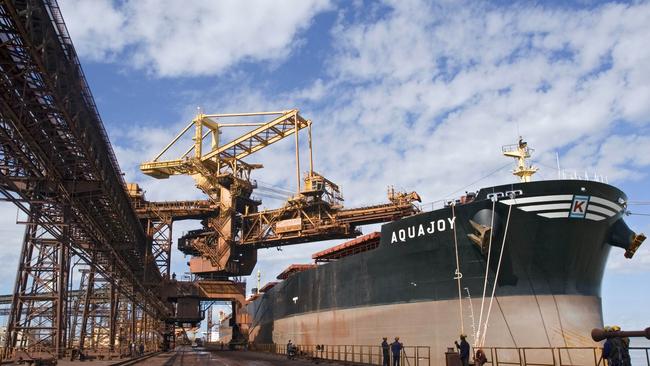Iron ore futures flat despite Vale flagging production delays of up to three years
Iron ore futures are flat despite Vale noting production delays could last for up to three years.

Iron ore future have continued this week’s falls despite Brazilian iron ore giant Vale flagging a two- to three-year shortfall in iron ore production from its operations.
Vale released its quarterly production report overnight on Monday, reiterating annual shipping guidance of 307-332 million tonnes of iron ore this year as some of its operations -- shuttered by authorities after the tailings dam disaster early this year -- return to production.
More than 90 million tonnes of annual capacity was turned off in the wake of the Brumadinho dam rupture and, despite a Brazilian court recently allowing the re-start of expanded operations at Brucutu, the company still has about 60 million tonnes of production capacity sidelined as it struggles to deal with the fallout from the tailings dam failure.
Half of that capacity is expected to come back on line by the end of the year, but Vale said overnight it expects it could take two to three years to win permission to return its current mines to their full run rate, a shortfall of about 30 million tonnes into the market.
Vale sold 70.8 million tonnes of iron ore fines and pellets in the June quarter, a 4.5 per cent lift on the January period, but 18.2 per cent below the equivalent period in 2018.
But production of both fines and pellets was sharply lower in the second quarter than the January period, as bad weather added to company’s woes. Vale’s mines produced 64.1 million tonnes of fines in the period, down 12.1 per cent on the first quarter of the year, and 33.8 per cent lower than the same time last year.
It produced 9.1 million tonnes of pellets in the three months to the end of June, down 25.5 per cent on the January quarter and 29.3 per cent lower than last year.
The company also lowered its pellet production guidance from 60 million tonnes to 45 million tonnes.
But despite Vale flagging long-term delays on a return to its full run-rate, iron ore futures traded on the Dalian exchange continued to fall on Tuesday, down 1. per cent in the evening.
This week has seen a sharp drop in the value of futures contracts, with the most actively traded contract down 4.5 per cent over the last three days, according to Bloomberg data.
Iron ore prices also softened overnight, with the benchmark price for 62 per cent iron ore dipping below $US120 a tonne.
Trading in Australia’s major iron ore companies was a mixed bag on Tuesday, with BHP Group up 24 cents to $41.58, Rio Tinto down 41c to $102.76 and Fortescue Metals Group down 12c to $8.78.


To join the conversation, please log in. Don't have an account? Register
Join the conversation, you are commenting as Logout